Question I have a 10 year old, spayed calico cat. I adopted her when she was 6 from my sister who reported no noticeable problems, except that she was anti-social. When i first introduced her to my 1 year old male cat there was tension but within months they were fine with one another. Tully (the female) began vomiting after about 2 months. She would vomit pretty much bi-weekly and it included hair. Then she began itching all of her fur off, at this point she was no longer anti-social and she would leave small blood trails in the window sills and my bedding. I learned she has a flea allergy that is treated every month with medicine and no longer itches all her fur off, but still some. Sometimes she hides, reverting back to her old anti-social ways and sometimes she wants attention. She is an awkward cat and appears to get confused if you pet her for more then two minutes, sometimes she stop purring and turn to you, hiss then bat you away. The vomiting has really never stopped in the four years I've had her. Sometimes (when there's stress) there is more and sometimes there is less. I recently switched to a low-grain organic food when my male cat got a uti. Tully's vomiting no longer had any substance and appeared to be just white foam. Is it possible that a senior, low-grain, organic food might be the best for her? does that exist? is it okay if my 5 year old male cat eats this? or do all of these symptoms sound like something else? Thank you for your time and knowledge.
AnswerHi Tabitha. The low-grain and grain-free foods that I have found don't offer a variety of formulas such as kitten or senior, but are for all life stages. They tend to contain much more protein than the average cat food, which is the most important nutrient cats need at every age, so the fat and carbohydrate contents become a small part of the equation. I personally strongly support feeding a food with as few grains as possible, since cats are obligate carnivores. But if you decided you wanted to move away from a low-grain food in order to find a senior food, you may want to separate the cats to eat unless your 5-year-old is very sedentary or overweight. Most senior foods are reduced in protein, fat and calories and may not provide an active cat with adequate nutrition.
Regarding your kitty's chronic vomiting, however, I think she should see a vet. She may have a condition called Inflammatory Bowel Disease (IBD). About half of kitties have constant serious diarrhea, while the others have chronic vomiting. No definitive cause has been found yet. There may be an allergic component to a food ingredient, and sometimes a prescription food can help. It could be partly an auto immune disease. And there may also be an infectious aspect to it, with any number of miscellaneous germs living in the gastrointestinal tract, so an antibiotic can sometimes help. But most often, the cat needs an oral steroid to help calm the inflammation and suppress the immune response that's creating it in the first place. Because there's no test for the disease, diagnosis will usually only be made after a diet change for food allergies and antibiotics for stomach bugs are tried first. Of course, this is just some general information on a condition that I have experience with. A vet would have to say what's going on with your kitty for sure.
As for her neurotic behavior, I think she's probably becoming over-stimulated when you pet her. For whatever reason, some cats become extremely excitable when petted and may lash out and scratch. Sometimes it's because there's a very large, sensitive nerve bundle that runs down the back to the base of the tail. When stroked a few times, petting feels good, but soon this sensitive area can become irritated, and a cat can become annoyed quickly. In this case, a cat may tolerate petting on the head and shoulders better, where it's not so sensitive. Most times, you can predict that a cat has had too much petting because she'll start swishing her tail, holding her ears back, and her eyes may become widened. That's a good time to leave kitty alone.

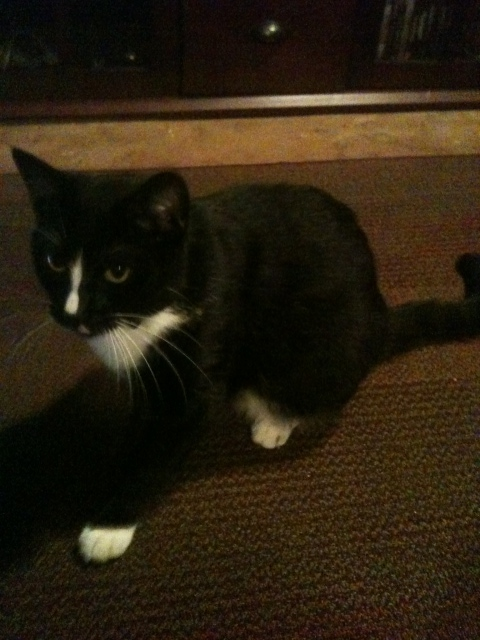 Identify Cat Breed?
Question
picture of my cat picture of my cat &nbs
Identify Cat Breed?
Question
picture of my cat picture of my cat &nbs
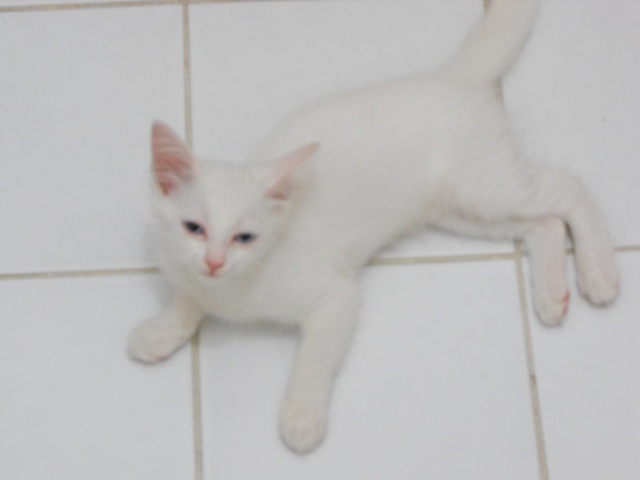 Kitten breed
Question
Minnoo
Dear Sir,
I brought home a female kitte
Kitten breed
Question
Minnoo
Dear Sir,
I brought home a female kitte
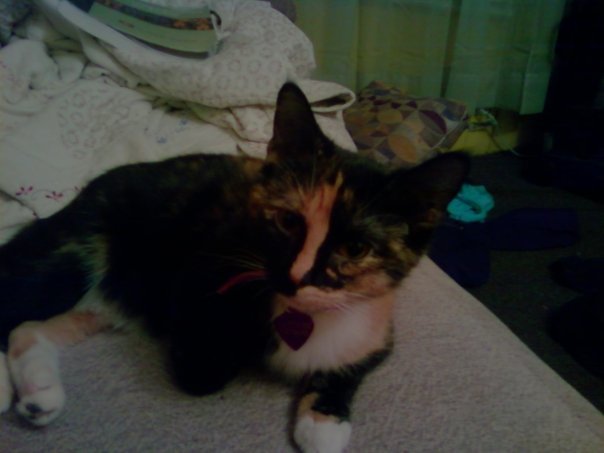 Female Cat changes behavior
Question
Patches
I have four older cats, a dog and now
Female Cat changes behavior
Question
Patches
I have four older cats, a dog and now
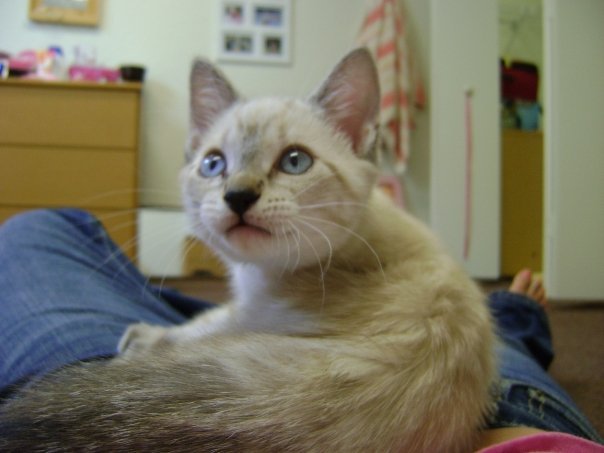 What kind of cat do i have?
Question
Chula
Ive been trying to figure out wha
What kind of cat do i have?
Question
Chula
Ive been trying to figure out wha
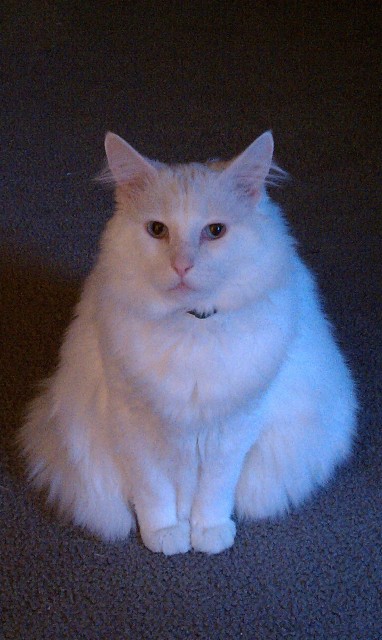 can you identify the breed of my cat?
Question
charlie
Ive been guessing Norwegian Forest Cat
can you identify the breed of my cat?
Question
charlie
Ive been guessing Norwegian Forest Cat